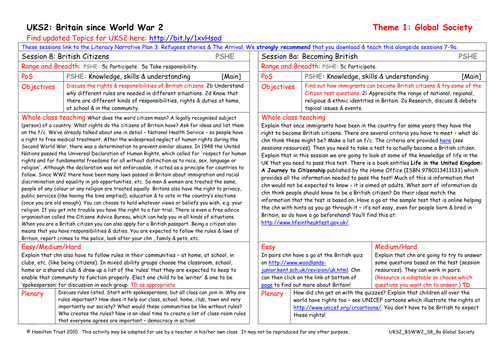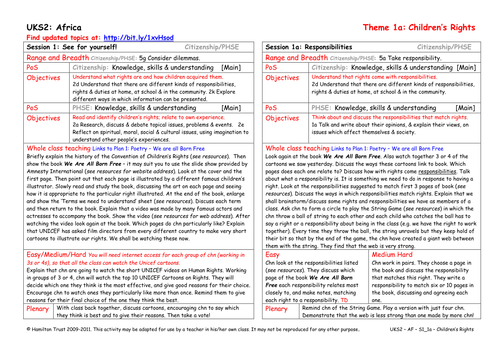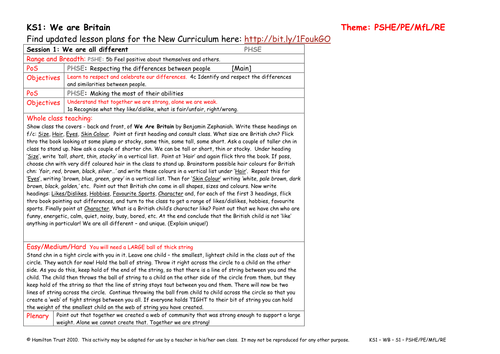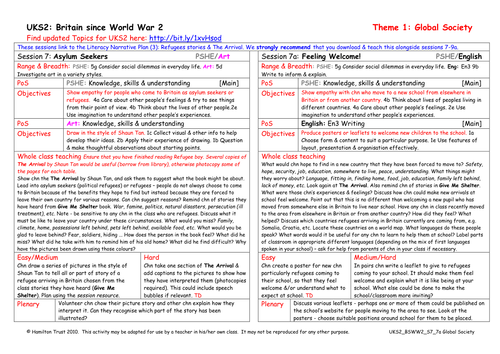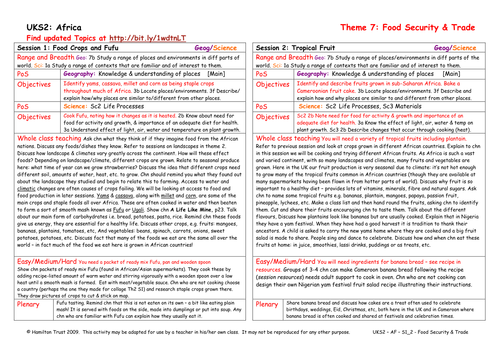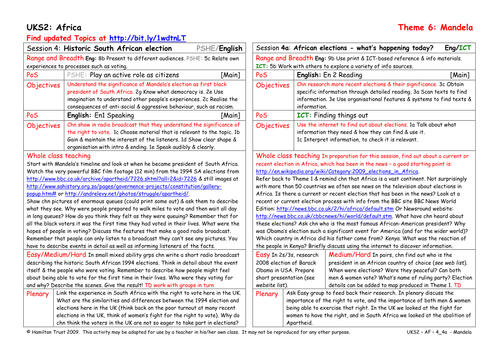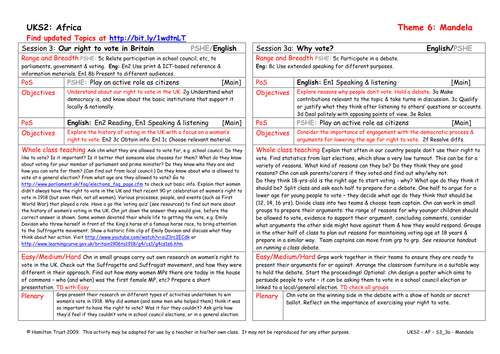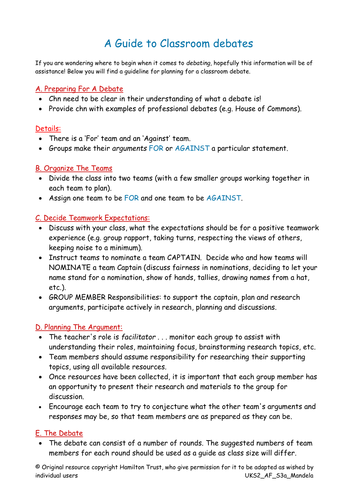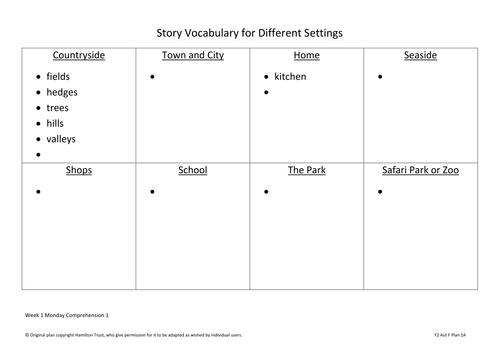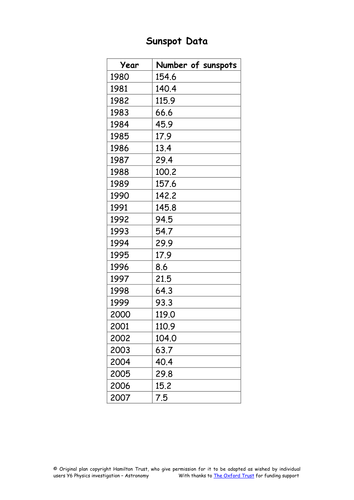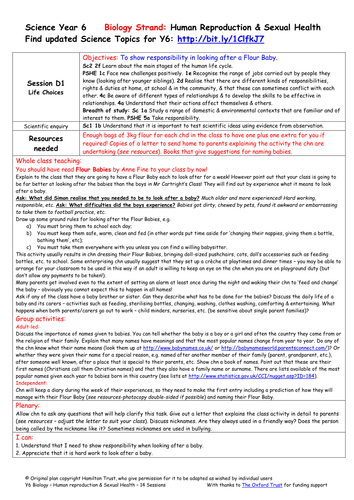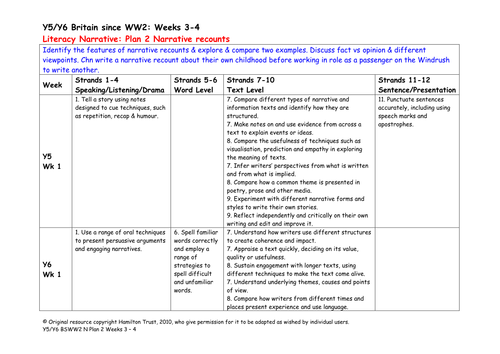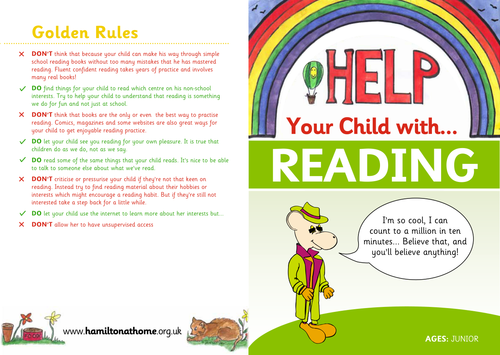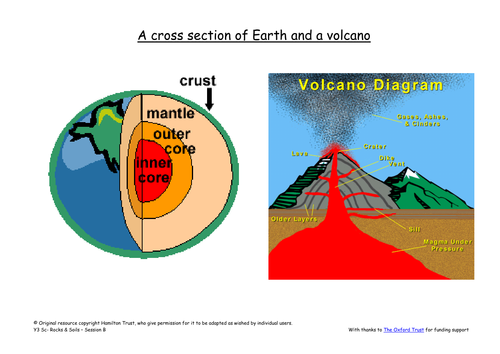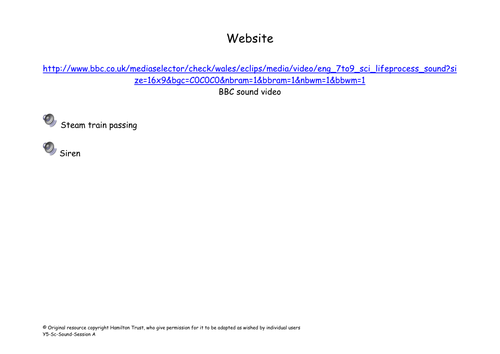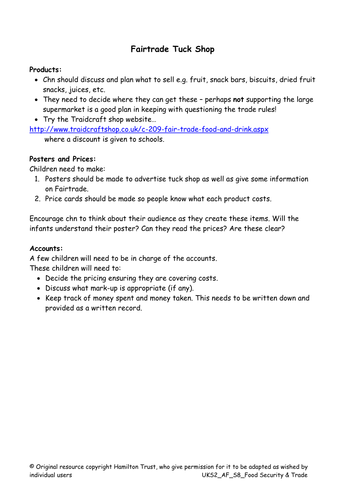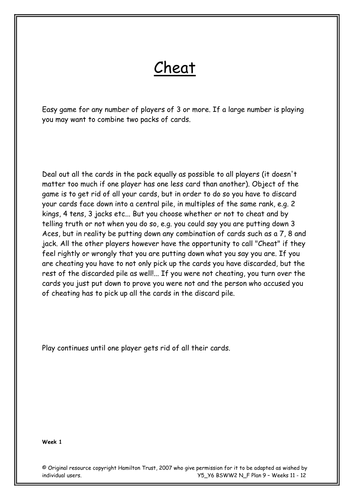
397Uploads
10041k+Views
11644k+Downloads
All resources

Becoming British
Immigrants who have been in Britain for a few years can ask to become British citizens. Take a look at the criteria they have to meet and some sample questions from the test they have to take. Explain that children around the world share some rights.

Responsibilities
Discuss how the cartoons seen yesterday link to the book We Are All Born Free. Discuss how with rights come responsibilities and what responsibility means. Play the String Game using rights and responsibilities and discover how strong a net can be made.
Suitable for years 5 and 6.

See for yourself!
Brief introduction to the Convention of Children’s Rights is followed by a close look at the book We Are All Born Free. Watch and discuss short cartoons from UNICEF that illustrate different Human Rights. Children give reasons for their choice of best cartoon.
Suitable for years 5 and 6.

We are all different
Children explore the idea stemming from ‘We Are Britain’ that there is no one image or character a of British person. We come in all shapes and sizes, colours and creeds. A splendid activity makes the point that united we make strong communities.

Feeling Welcome
New arrivals in Britain should be made to feel welcome. Think about children moving to a new school from another part of Britain or from another country. Children create posters or write leaflets to welcome newcomers to their school.

Tropical Fruit
In this session, we identify and describe fruits grown in sub-Saharan Africa. The need for fruit as part of a healthy diet is discussed and children taste some tropical fruits. Children follow a recipe to make Cameroon banana bread.

African Elections
Africa is a large continent with over 50 countries – usually there is an election going on somewhere! Children research a current/recent election in Africa and/or the election of Barack Obama as President of USA. Discuss the significance of Obama’s election.
Suitable for years 5 and 6.

Our right to vote in Britain
Examine voting in the UK, recent elections, and why we vote. Children use a quiz to explore the history of voting in the UK and focus on women’s right to vote, and then do further research. Watch film footage of Emily Davison.
Suitable for years 5 and 6.

Why Vote?
Discuss facts about voting in the UK: not everyone exercises their right to vote. Engage children on the right to vote and its significance in their own country. In two teams for and against, debate the issue of lowering the voting age.
Suitable for years 5 and 6.

Year 2 Fiction 1: Stories in familiar settings
Explore familiar settings through Margaret Mahy's story A Lion in the Meadow, You Choose by Nick Sharratt and There’s No Such Thing as a Dragon by Jack Kent. Children generate ideas and plan a story about an animal that lives in their house under the stairs. There is a focus on using simple punctuation and story problems and solutions.

The sun
Show children that white light is actually a mixture of colours and that the Sun provides heat! Investigate sunspots using shadows and the rotation of the earth around its axis. Finally draw a graph of the number of sunspots a year and identify a pattern.
Suitable for Y6 pupils.

Life choices
Session 1 - Think about all the different relationships that children have/will have with other people, leading to a discussion about marriage. Research marriage customs in different cultures. Children return to timelines and predict hopes and expectations for their future lives.
Session 2 - Think about all the different relationships that children have / will have with other people, leading to a discussion about marriage. Research marriage customs in different cultures. Children return to timelines and predict hopes and expectations for their future lives.
Suitable for Y6 pupils.

Three states of matter
Solid, liquid or gas? That is the question that kicks off this block of six sessions. Children investigate the properties of the three states and sort some familiar and unfamiliar objects into them. Suitable for Y5 pupils.

Recounts Weeks 3 - 4
Identify the features of narrative recounts and explore and compare two examples. Discuss fact vs opinion and different viewpoints.
Children write a narrative recount about their own childhood before working in role as a passenger on the Windrush to write another.

Under our feet!
Explore what is under our feet. Draw and label a cross section of the Earth. Discover the three main rock types. Test the permeability of different kinds of rocks. Find out information from websites.
Suitable for Y3 pupils.

Introduction to sound
Find out what children already know about sound. Listen carefully to sounds in the environment. Children try a circus of activities to describe sounds, suggest how musical instruments make sounds, why animals prick up their ears and why some have very large ears.
Suitable for Y5 pupils.

Fair Trade Tuck Shop
Children consider arguments for and against fairtrade. They plan to set up a fairtrade tuck shop to raise awareness.
Design and make posters to advertise the tuck shop and explain some of the issues surrounding fairtrade. Some children organise the stock and accounts.

Journey To Jo'burg
Explore in more detail the history of apartheid in South Africa, with links to Mandela. Look at the signs that were displayed.
Pick out examples of effects of apartheid on non-whites in Journey to Jo’burg, and act out short scenes that show these effects.
Suitable for years 5 and 6.

Instructions and Explanations Weeks 11 - 12
Wake-up to the 21st century with instructions for computer games, mobile phones and explanations for blogs and podcasts.
Children write a booklet for their granny, giving instructions and explanations to fit her for life in 2010!

